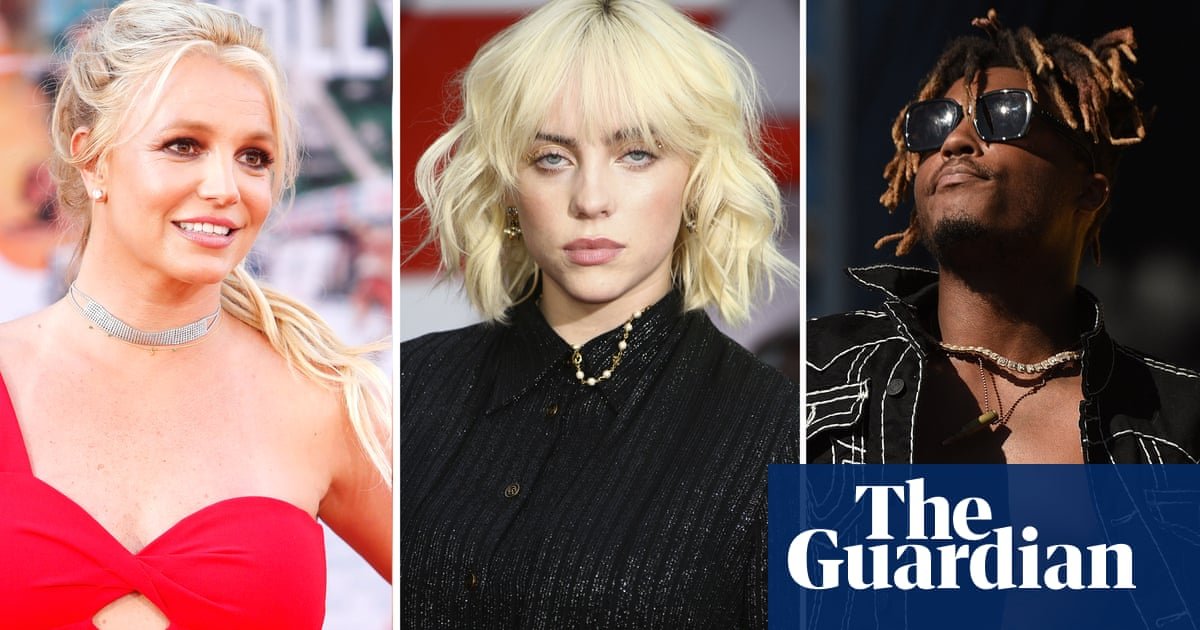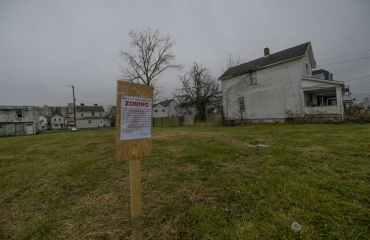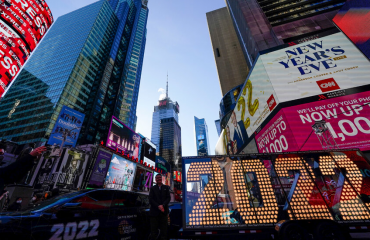Trouble at the top: celebrity documentaries showed the dark side of fame in 2021 – The Guardian
As social media democratizes the experience of celebrity, this year’s documentaries put a new spin on a familiar, often tragic tale
Last modified on Fri 17 Dec 2021 08.04 GMT
There’s a moment in The D’Amelio Show, the Hulu reality series about teenage TikTok stars Charli and Dixie D’Amelio and their parents, in which the 17-year-old Charli – who shot to fame on the platform as a 15-year-old sophomore in high school with chipper, lithe dance videos – tries to make sense of the rupture in her life: “I don’t consider myself famous,” she says in a standard reality confessional. “I’m just a person that a lot of people follow for some reason. I think it was the right place, right time. I think it was a vibe, maybe, that I give off.”
I thought about this response for weeks after the show’s September premiere, first because it’s ridiculous for Charli D’Amelio to be considered “not famous” – she has, at time of writing, over 131m followers on TikTok – her name and face synonymous with the platform at the forefront of pop culture. But also, I get it. Over the course of a few months in 2019, Charli D’Amelio went from high schooler in Connecticut with today’s version of anonymity – a figure to your first and second hand connections, visible online with attention proportional to your peers – to global celebrity, the face of cultural forces (the explosion of TikTok, the bland algorithmic medium of everyone’s taste) outside of one’s control or full understanding. How could anyone make sense of that? How could you see yourself?
It’s a heavy question that carries through several other films about celebrity this year, from Billie Eilish’s surprisingly grounded Apple TV documentary The World’s a Little Blurry to this week’s Juice WRLD: Into the Abyss, the HBO film about the late icon of so-called “SoundCloud rap.” In footage shot by tour videographers during the last year of his life (the emo-rap artist, who openly struggled with opioid addiction, died of an accidental drug overdose in December 2019, less than a week after his 21st birthday), Juice, born Jarad Anthony Higgins, attempts to account for his meteoric popularity: “It still feels surreal,” he says on a Facetime call with a fellow rapper. “If I stop and think about it, that’s how my head’s gonna get too full and that’s how I’m gonna become an asshole or somebody that went Hollywood, somebody that’s not a genuine person.”
Fame is an evergreen, often tragic subject for the camera; we’re all familiar with a star, often female, falling from icon to ire, dogged by delusion, caving to the pressure of others’ expectations or opinions, a la Amy Winehouse in Asif Kapadia’s heartbreaking Amy. Celebrity’s toxicity undergirded some of the year’s most popular and polarizing documentaries, from Framing Britney Spears to HBO’s Jagged, on Alanis Morrissette to Roadrunner: A Film about Anthony Bourdain. Several, such as Malfunction: The Dressing Down of Janet Jackson, have tried to re-evaluate or contextualize the narrative of past celebrity according to current values, tilling and curating an archive to find the person or truth therein.
But a batch on the newest generation of stars look forward, trying capture an unfolding cultural paradox: fame is at once swifter and more stratifying than ever before, but also more democratized. The World’s a Little Blurry, Into the Abyss, and the D’Amelio Show offer fascinating, often bleak portraits of what it’s like to win the fame lottery anyone with an online presence is playing, deliberately or not; on the internet, we’re all famous, observed by people we can’t see and discernible to people we don’t know.
The pressure of maintaining an image for masses of people you don’t know is well-trod territory, given sensitive and at times shocking treatment in 2021, especially for female celebrities whose bodies, attractiveness, age, thinness, and desirability are always under scrutiny. In Demi Lovato: Dancing with the Devil, the now 28-year-old singer recounts how the chaste image as a Disney Channel star in the aughts kept them from not only reporting rape by a costar, but understanding it as a violation in the first place. The queasy collection of documentaries on Britney Spears – the New York Times and FX on Hulu’s succinct and damning Framing Britney Spears and Controlling Britney Spears, Netflix’s less effective Britney vs Spears – brought fresh outrage to the pop star’s hounding by the press and long-ignored abuse through her family’s legal control of her estate.
Others took fame as a prerequisite to tragedy. Roadrunner, directed by Morgan Neville, begins not with Bourdain’s evolution as a chef, but with the true bisection of his life: celebrity, which arrived at age 43, in 2000, with the publication of Kitchen Confidential. Through interviews with close friends and a trove of archival footage and reanimated correspondence, Roadrunner burrows into a restless, complicated character bogged down by the familiar, persistent burden of fame. Into the Abyss, which similarly (if over a much shorter period) synthesizes archival footage and interviews with the inner circle for a tribute to a generational talent with demons exacerbated by the whirlwind (and access to drugs) of stardom.
The pressure to always stay visible, the bottomless appetite for new content, the escalating demands for authenticity – these are familiar dynamics to anyone on social media in 2021, though experienced in concentrate by celebrities made famous online at mind-boggling speed. “I can’t have one moment where I’m like ‘I don’t wanna do this,’” Eilish laments in The World’s a Little Blurry after a fan wrote on Instagram that she was rude during a meet-and-greet. “I have to keep smiling and if I don’t, they hate me and think I’m horrible.”
The most fascinating and troubling exploration of fame, however, came from The D’Amelio Show, one of the nascent TikTok-to-Hollywood productions (such as Addison Rae’s gender-flipped He’s All That) that appears to fill the mantle left by Keeping Up with the Kardashians, but operates more as a mental health PSA. Over the course of several episodes and half-hearted plot points – beach date, family dinner, Dixie’s first live singing performance, Charli’s nomination for a fan award – the D’Amelios appear to be a loving family confounded by stardom, unsure if it’s worth it, yet stuck in the spotlight loop. Mass attention, courted but not explicitly sought on TikTok, has made the teenage girls paranoid, wary, timid, unable to find fun in their old passions; the job of celebrity seems even more fragile when the talent was being yourself.
As the pilot ends, Dixie breaks down in anxious sobs over negative comments about her appearance in a Vogue video. The camera cautiously enters her bedroom, where she’s comforted by her parents. Dixie doesn’t want to do it anymore, doesn’t want to be judged; yet, she and her family assure, they want this filmed, so people can understand, can see. It’s a familiar feeling, wanting to both connect and opt out, at a scale that gives me chills. The camera keeps rolling.



